According to the CDC, one of the best and only lines of defense we currently have against COVID-19 is social distancing, isolation and quarantining. Staying 6 feet apart and avoiding groups/crowded places is essential to protecting ourselves and others from the virus, as well as flattening the curve globally. However, as social beings, many have wondered how this temporary solution will affect our mental health as well as relationships.
Richard Slatcher, professor of psychology at the University of Georgia, has teamed up with two international colleagues to determine the psychological effects of decreased in-person communication and isolation through their “Love in the Time of COVID” project. The study has been translated into 10 different languages.
As nothing like this has happened before, information continues to roll in as the story develops. Before we dive into the data, I talk through some of the limitations of the survey as well as some unanswered questions.
According to the study, more than 50% of people have felt less socially connected since the start of social distancing, which you could say is somewhat expected. More shockingly to the researchers, about 25% percent of people feel more socially connected.
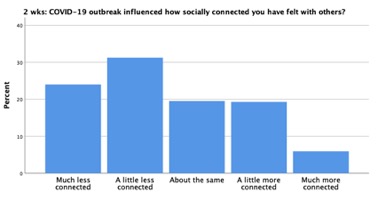
According to Slatcher, individuals feeling more socially connected since the pandemic could be a result of people having more time to slow down and connect, more use of video platforms like Zoom, and the collective sense that we’re all in this together. But, how long does that morale last as quarantine continues?
Their Story: Catherine Willingham
Catherine Willingham said she feels socially connected in the sense that more people are collectively feeling and understanding mental health repercussions (depression, anxiety, lack of motivation) during this time. She has dealt with mental health issues for many years prior to COVID-19, and now there is a sense of visibility, according to Willingham. In the same breath, social disconnection is a fairly present feeling for Willingham. As someone who is socially distancing in a non-ideal space and generally tries to limit technology use in general, it often worsens her mental health conditions, and it’s been difficult to connect, according to Willingham.
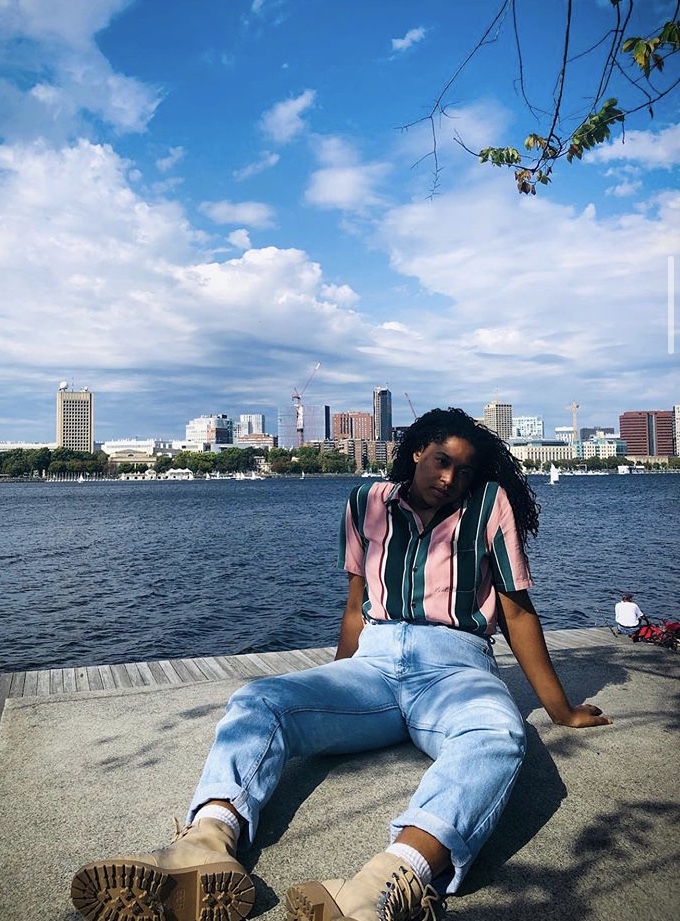
Willingham decided to leave her comfortable apartment in Boston despite anxieties surrounding being back in her childhood home, the source of many of her mental health issues. According to Willingham, Boston leans more conservative and being a lesbian woman of color living there during such uncanny times is slightly worrisome. As a musician, leaving behind her instruments have posed some challenges as well.
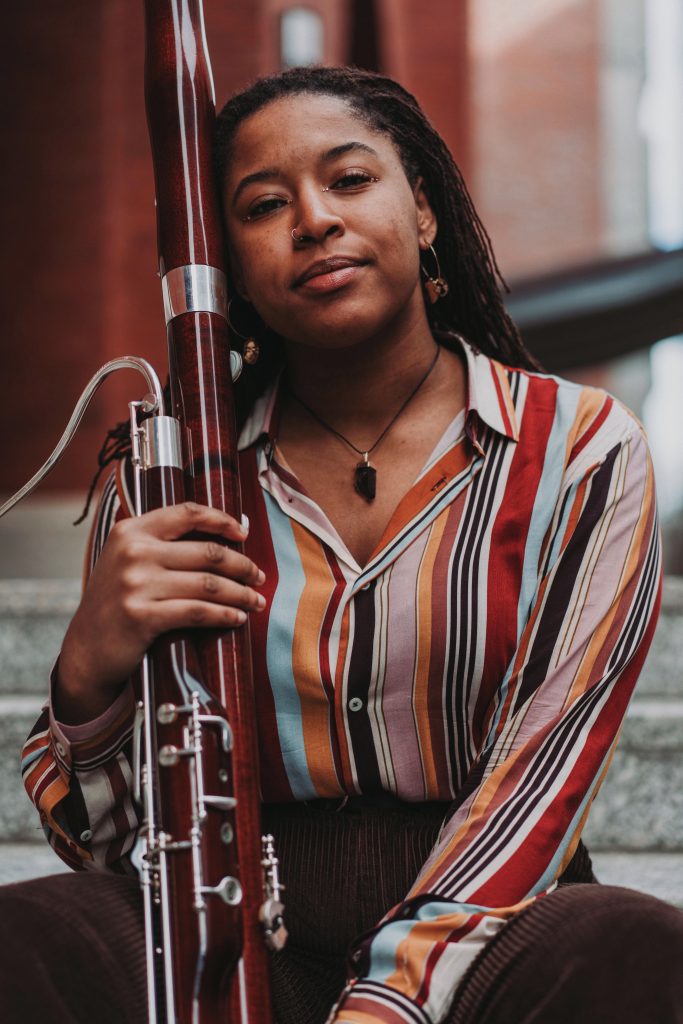
Fortunately, Willingham sees a silver lining in this time of stillness. In her opinion, it has given her the opportunity to rekindle her deep love for music as a therapeutic tool. Since quarantine she’s taken “a more childlike approach” to music and has purchased a couple of instruments, including a bass and kalimba. Willingham hopes to continue exploring music through the lens of each instrument.
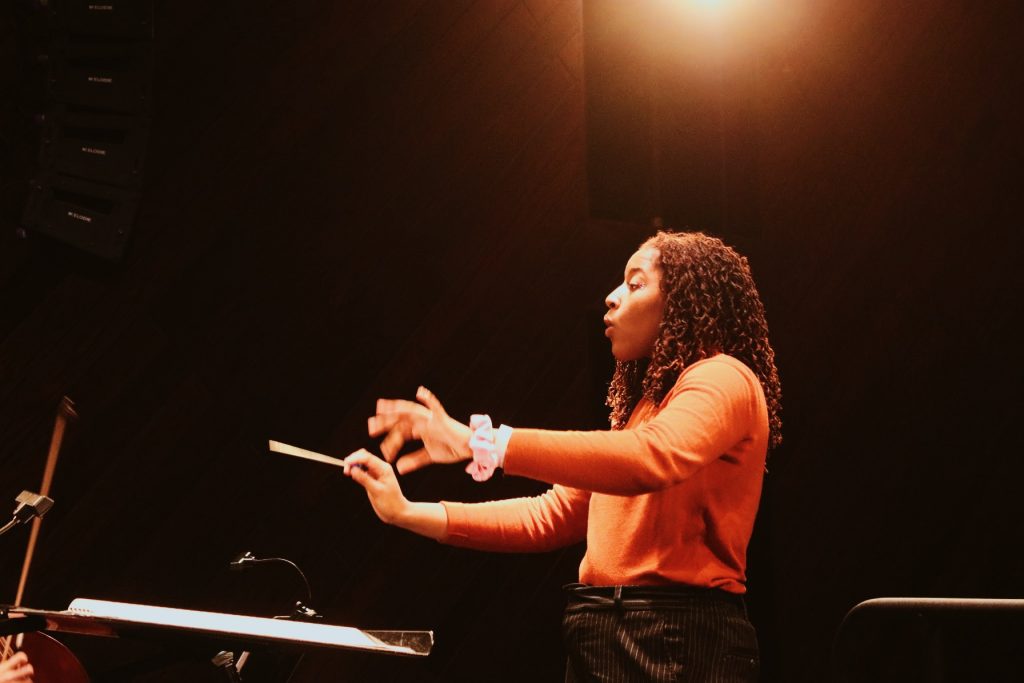
For Willingham, music will continue to help her get through this time.
Social Distancing and Romance
As for romantic relationships, there is data in Slatcher’s study showing that some couples are feeling more connected since the start of quarantine and some, well, aren’t. Those with a relationship satisfaction score of five or less (10 being the highest) showed a striking correlation to feeling down, depressed or hopeless.

Divorce rates have spiked in China since the lockdown, according to official government sources.
We can see the manifestation of that through higher depression levels for those in unsatisfactory relationships in Slatcher’s study.
Fortunately, nearly 50% of those with a relationship satisfaction score of six or seven feel even more connected to their partners since quarantine.
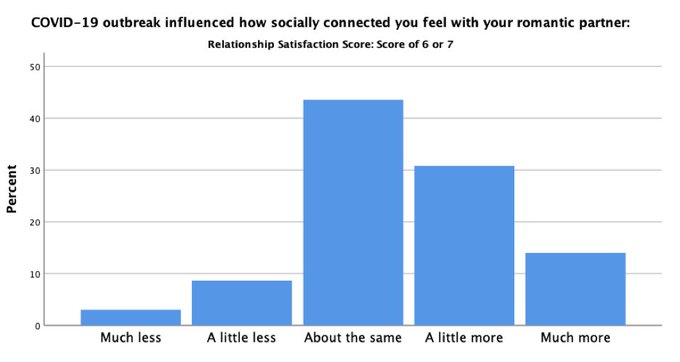
Why might that be so? Slatcher helps to debunk this a bit:
As social distancing continues, morale could prove to be fickle, and unexpected trends may arise.
Their Story: Ledjen Haase
For Ledjen Haase, University of Kentucky merchandise student and content creator, quarantine has been a time of enlightenment and self-reclaiming.
After a recent break up, Haase now realizes the codependent tendencies of his most recent relationship and is grateful that it ended just before COVID-19 lockdown. As a person that needs ample space, quarantining in an unsatisfactory relationship would have been increasingly draining, according to Haase.
He has enjoyed his move back home to Georgia, where he’s been able to finally slow down, practice yoga, enjoy tea time with his mother, and reflect on accomplishments he previously neglected after living a life of constantly being on the go.
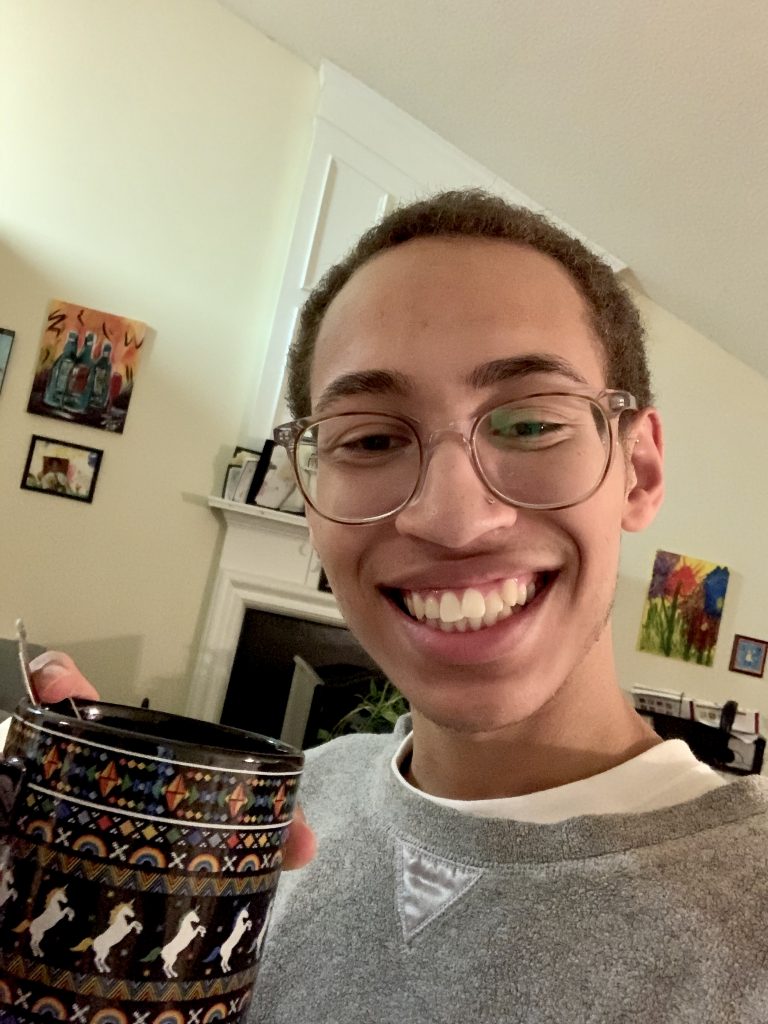
When everything is at a halt, Haase and Willingham have been able to find a silver lining through our fight against COVID-19.
As time continues, access to data surrounding how life in the pandemic will affect mental health and relationships will become more available. Depending on how long the pandemic lasts, Slatcher hopes to explore more of the correlation between mental health and those who have more access to nature as well as exploring how dating and communication will function amid social distancing.
Though this is unprecedented, the American Psychology Association has composed a list of resources, things to expect psychologically and how to cope as we continue to navigate life amid the pandemic (i.e.: healthy habits, limiting news consumption to reliable sources, and practicing gratitude).
Hawa Camara is a senior majoring in journalism at Grady College of Journalism and Mass Communication with a certificate in entrepreneurship from the Terry College of Business, both at the University of Georgia.




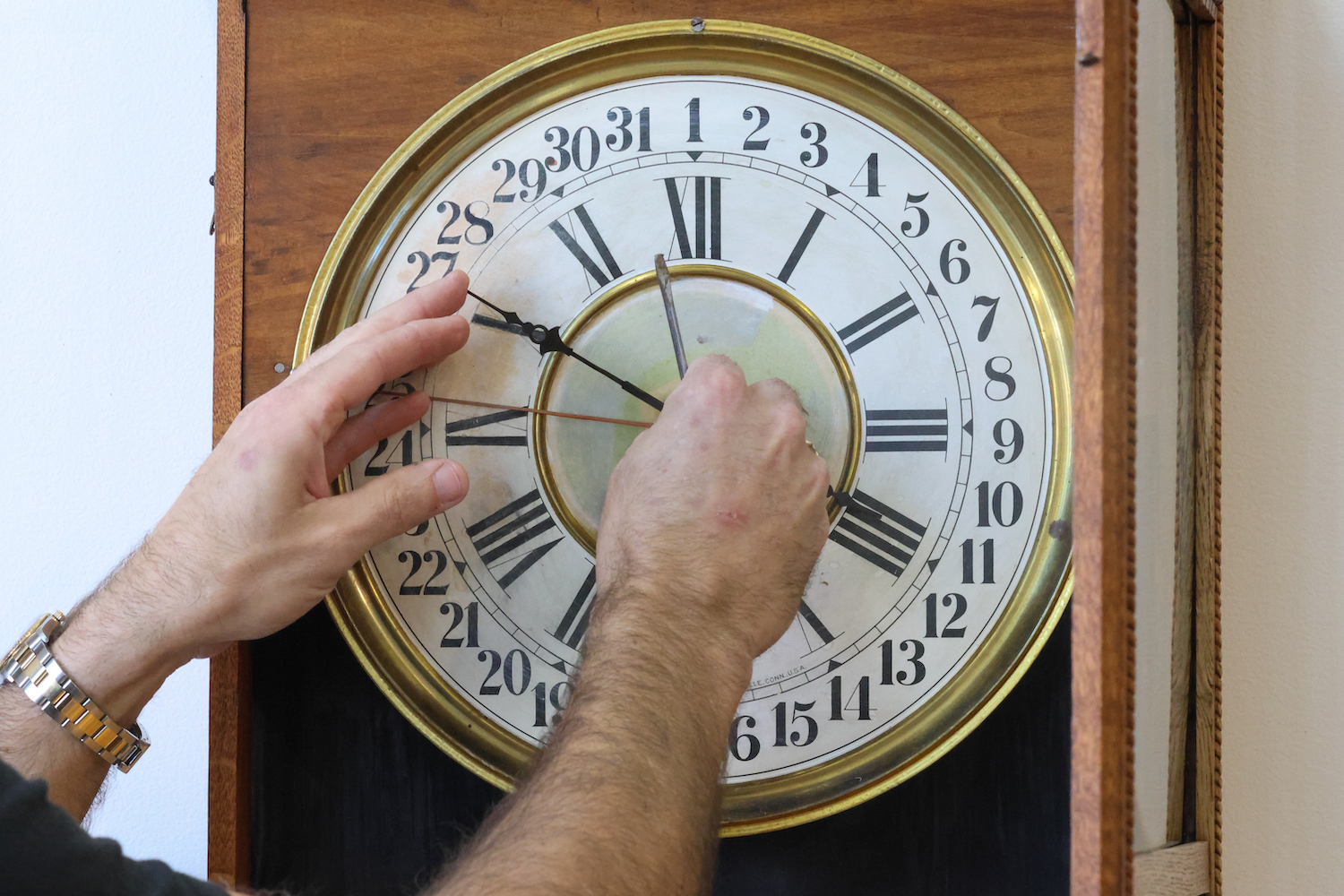



Show Comments (2)
Jasa Sablon Jogja
I am concerned about the current conditions. Where the impact of the corona virus has paralyzed the world economy, even I have to take time off and spend a lot of time at home. hopefully the corona virus outbreak will end soon and we can move back to meet our daily needs. Thank you for the information, I hope you and all of us get health.